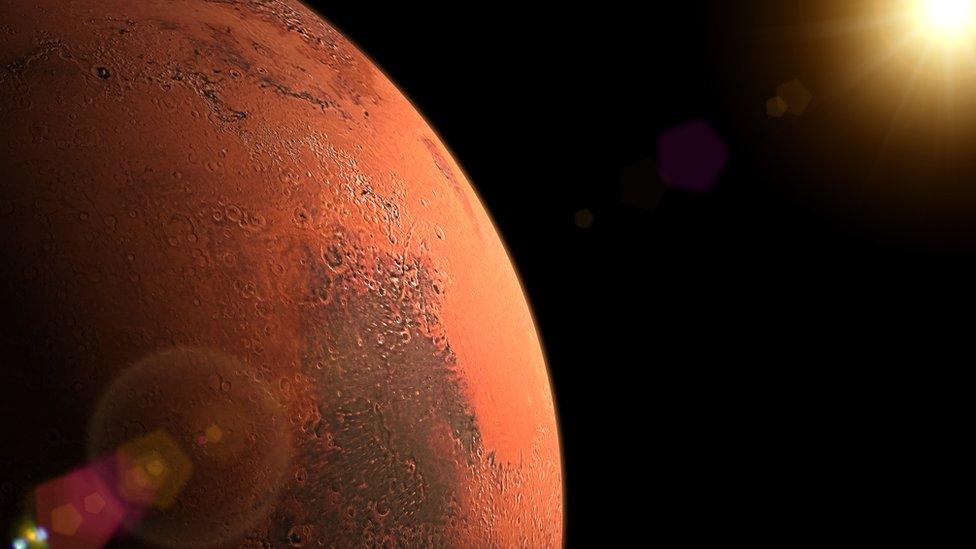Venus: Why could there be pieces of it on the Moon?
- Published
- comments
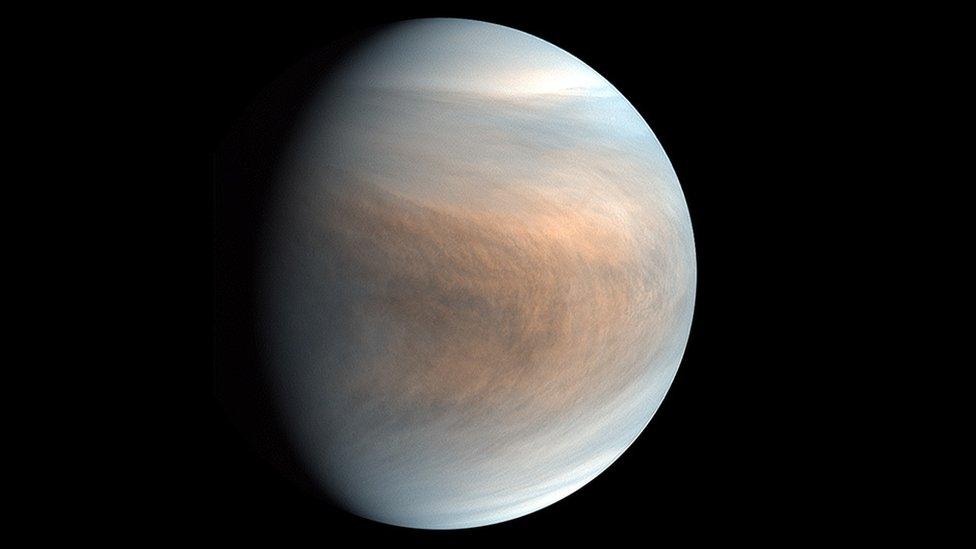
Venus is the second planet from the Sun and our second closest neighbour in the Solar System
With new research suggesting that alien life could live in the clouds above Venus - how are we ever meant to explore the planet and find out more?
Well, it could be nearer to us than we think...or at least bits of it!
Two astronomers in the US think that possibly even billions of pieces of the planet could be on the Moon.
Samuel Cabot and Gregory Laughlin from Yale University in the US have been been looking into the theory and their research is to be published by the Planetary Science Journal.
They believe asteroids and comets which slammed into Venus might have dislodged as many as 10 billion rocks, sending them into an orbit which crossed with our planet and our Moon.
The Moon offers safe keeping for these ancient rocks.
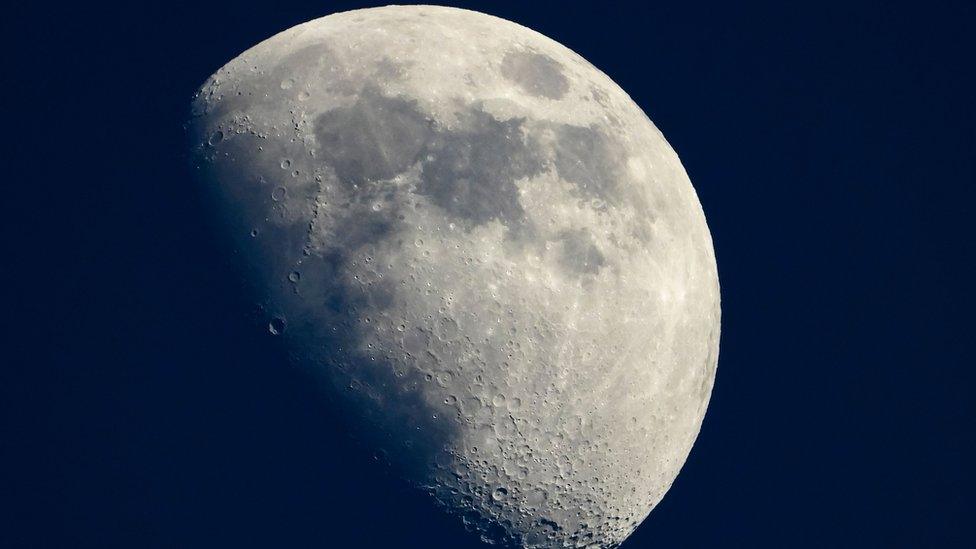
Astronomers in the US think there could be potentially billions of pieces of Venus on the Moon
"Some of these rocks will eventually land on the Moon as Venusian meteorites," said Cabot, lead author of the study.
He added that impacts like these don't happen very often - only every 100 million years or so! They did happen more often billions of year ago though.
"Anything from Venus that landed on Earth is probably buried very deep, due to geological activity. These rocks would be much better preserved on the Moon," Cabot said.
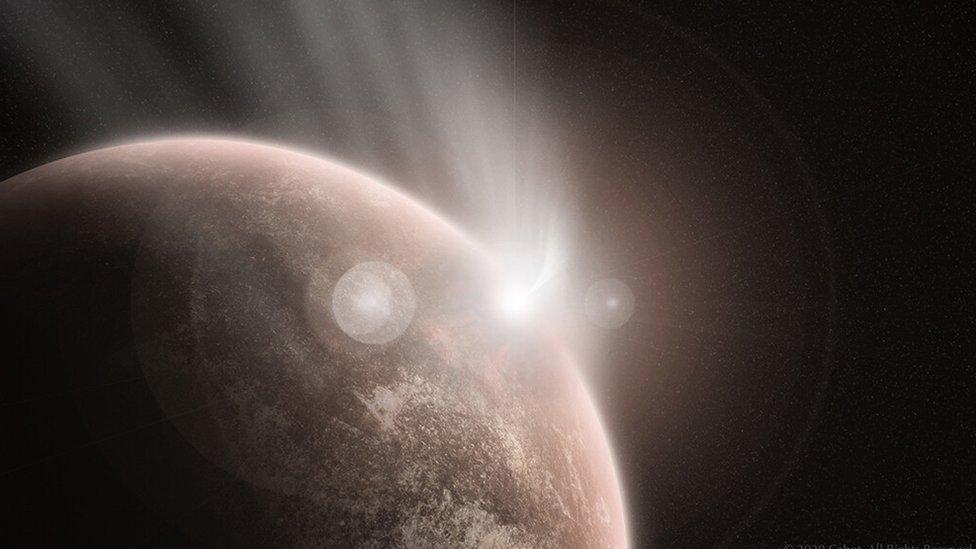
An illustration of a comet striking ancient Venus
Many scientists think that Venus may have had an Earth-like environment billions of years ago, with water and a thin atmosphere but testing out those theories is really tough without being able to analyze samples from the planet itself.
Venus also has a much thicker atmosphere today, so the astronomers don't think any more rocks could escape after an impact with an asteroid or comet.
It's hoped that upcoming missions to the Moon, such as Nasa's Artemis programme, could be a good chance to collect and analyse more lunar soil than ever before though.
"An ancient fragment of Venus would contain a wealth of information," Laughlin said. "Venus' history is closely tied to important topics in planetary science, including the past influx of asteroids and comets, atmospheric histories of the inner planets, and the abundance of liquid water."
- Published13 October 2020
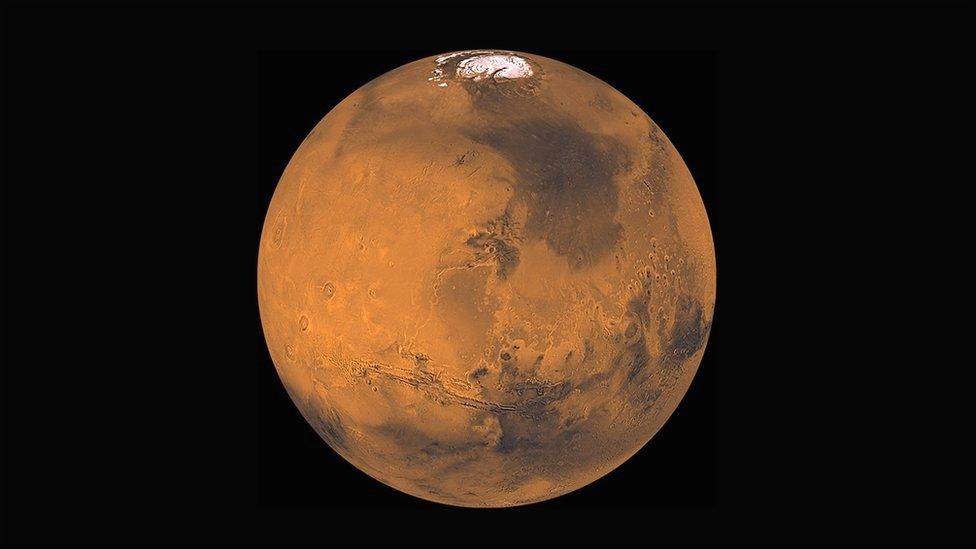
- Published28 April 2020
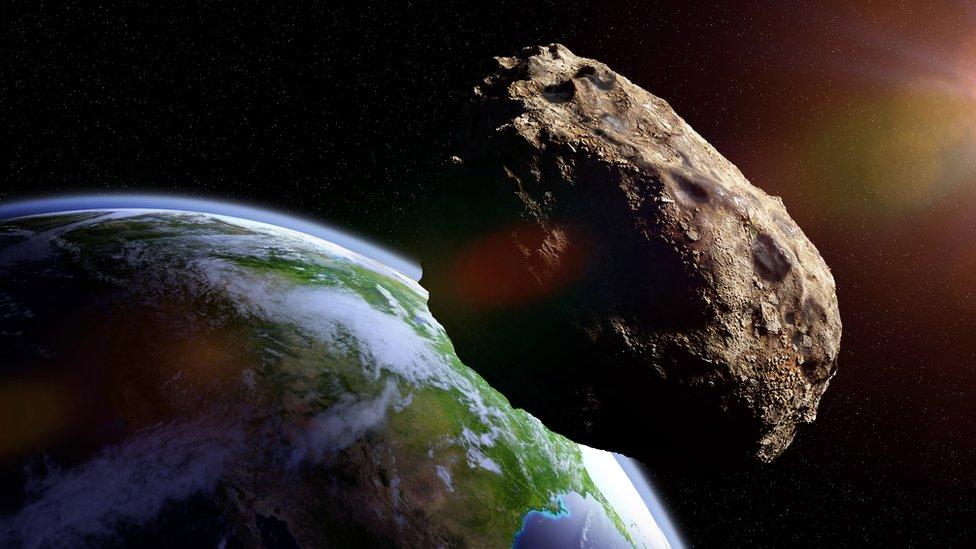
- Published29 September 2020
